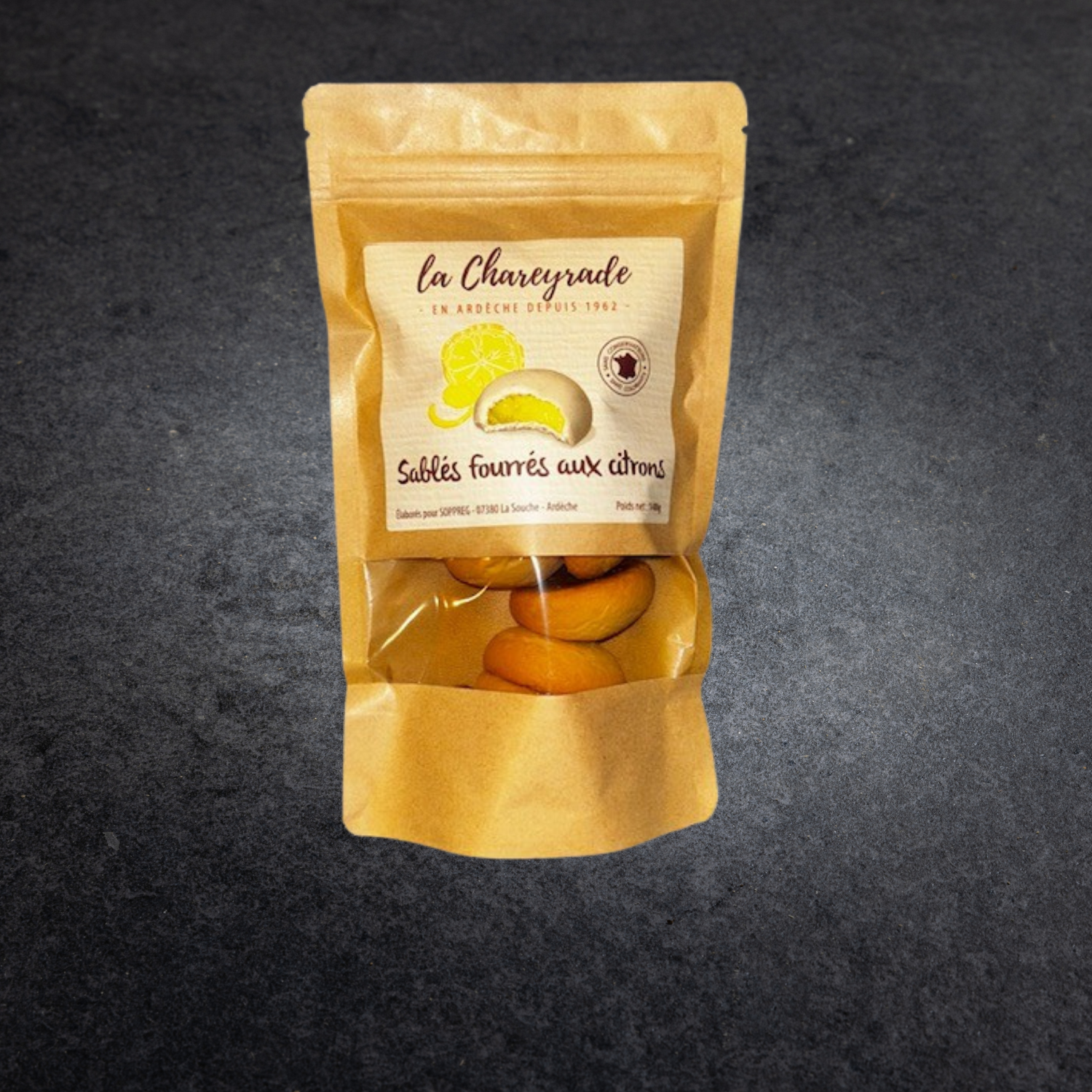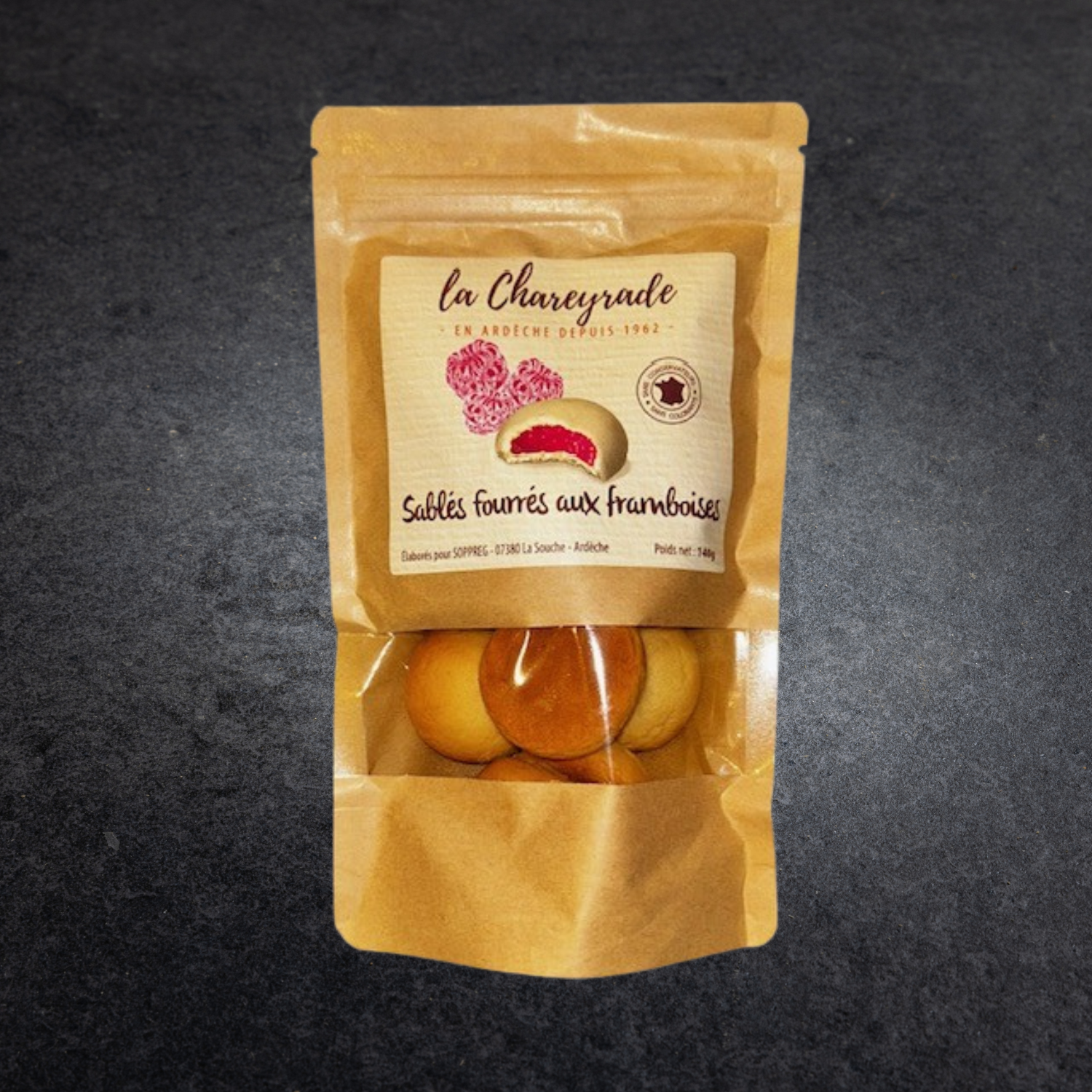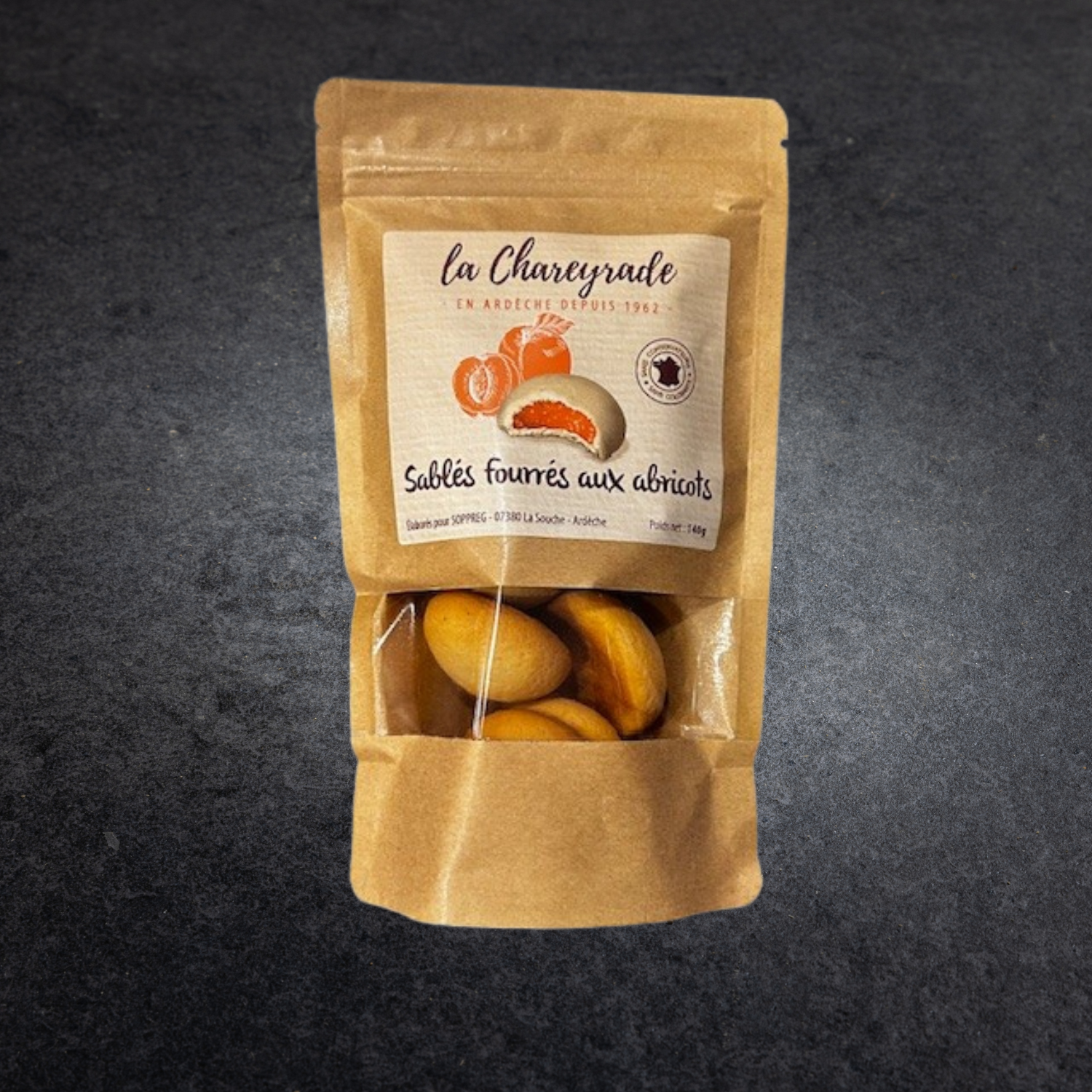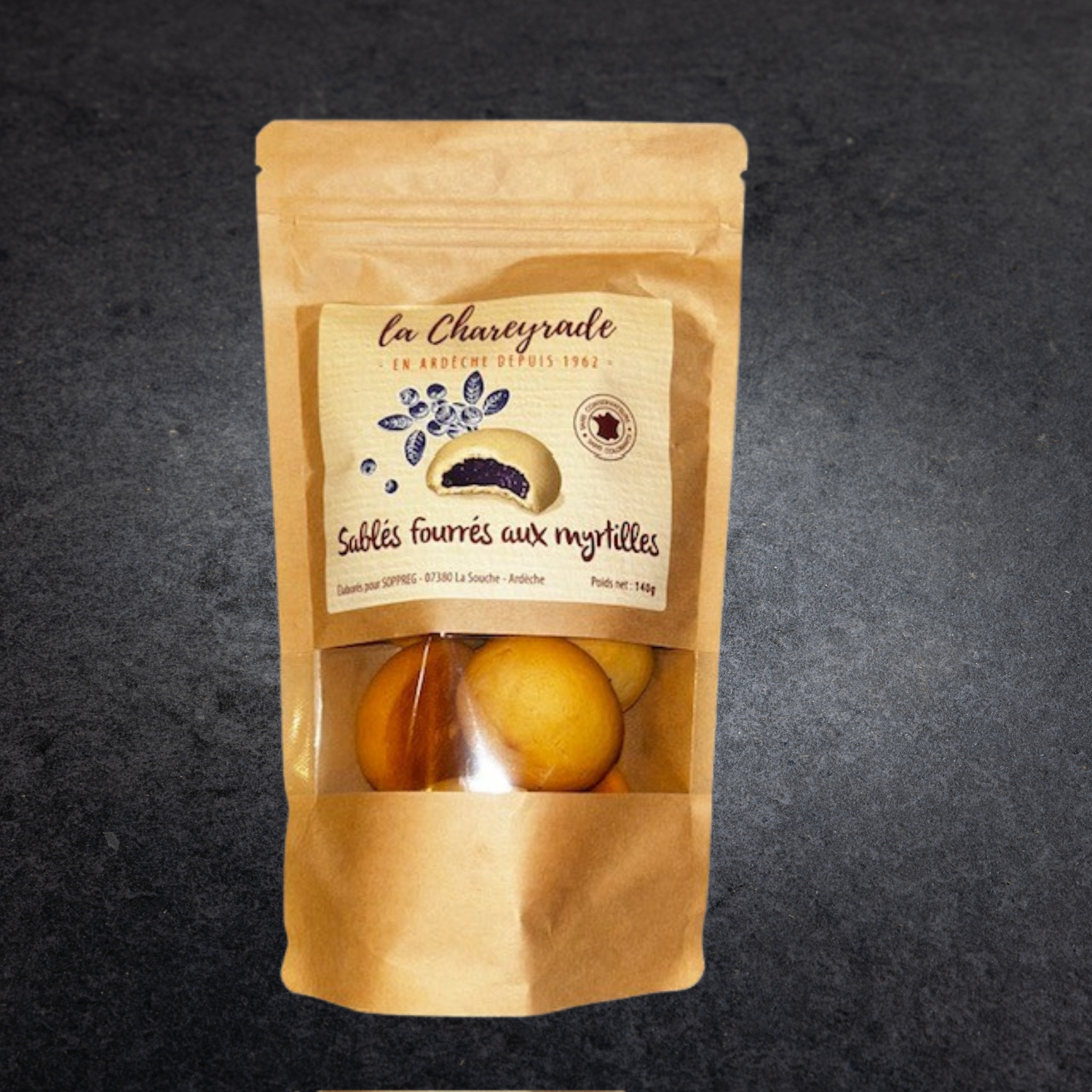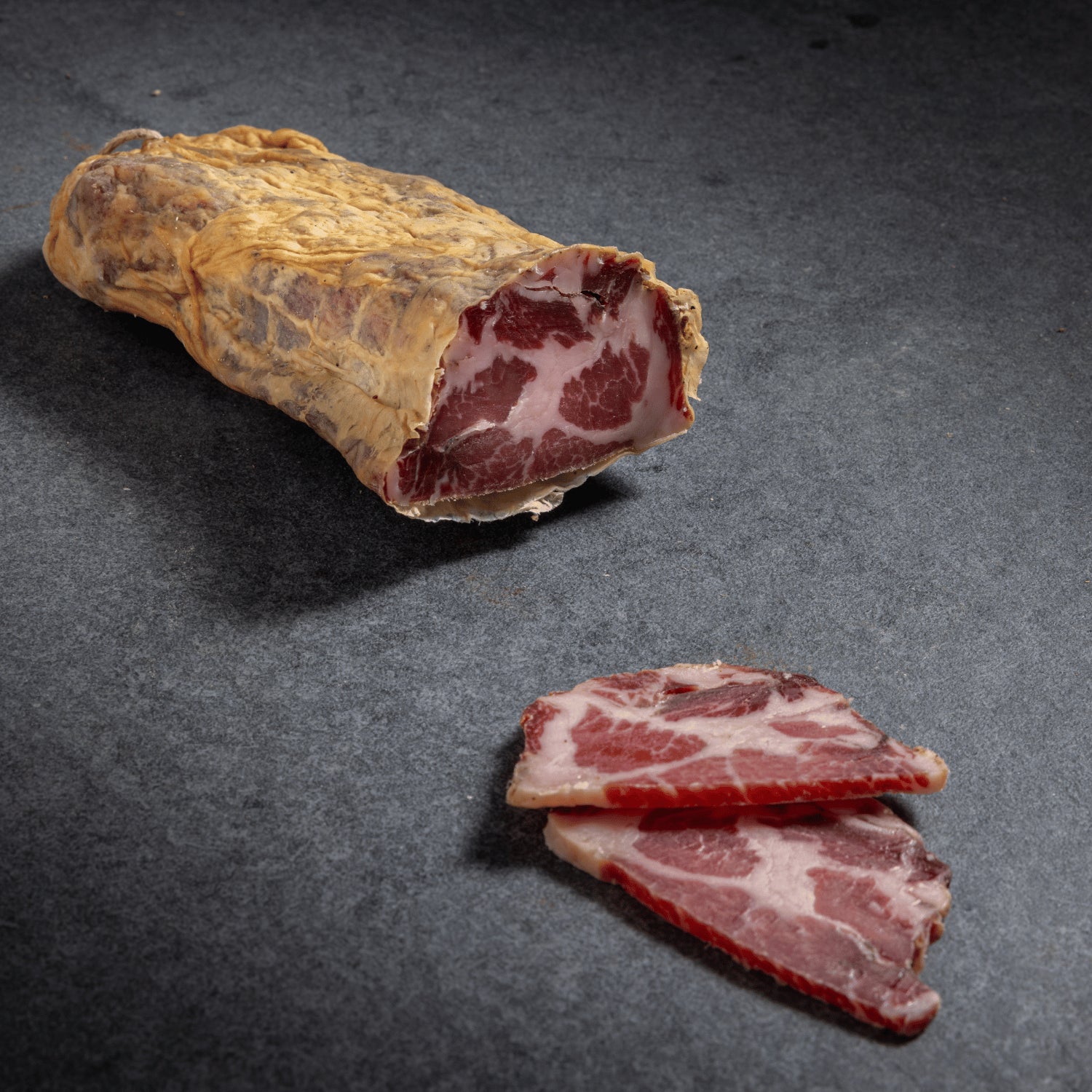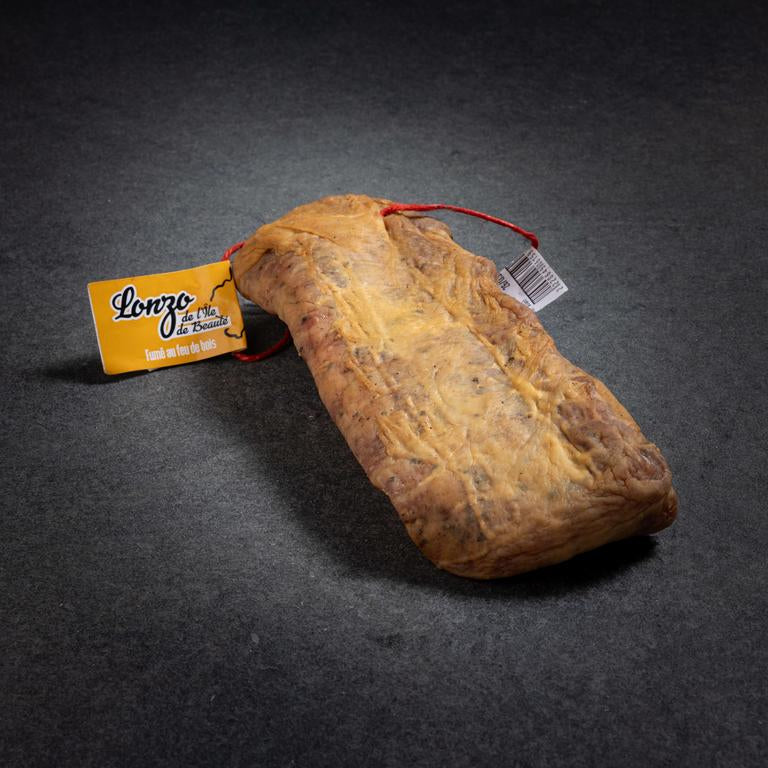Lonzu Corsican
Delivery in 48-72 hours to your home or to a relay point
Tasting advice
Tasting advice
1. Take out the sausage at least 15 minutes before eating it.
2. Do not hesitate to enjoy this sausage when it is very dry.
3. Cut thin slices for an authentic tasting experience.
Ingredients
Ingredients
Pork fillet (Origin France), salt, sucrose, dextrose, pepper.
Antioxidants: ascorbic acid and sodium ascorbate.
Preservatives: Sodium nitrite and potassium nitrate.
Best before date (BBD): 40 days.
Nutritional values
Nutritional values
Average values for: 100 g: Energy 911 kJ (or 217 kcal); Fats 8 g including saturated fat 3g Carbohydrates 0g including sugars 0g; Protein 36g; Salt 5.4g
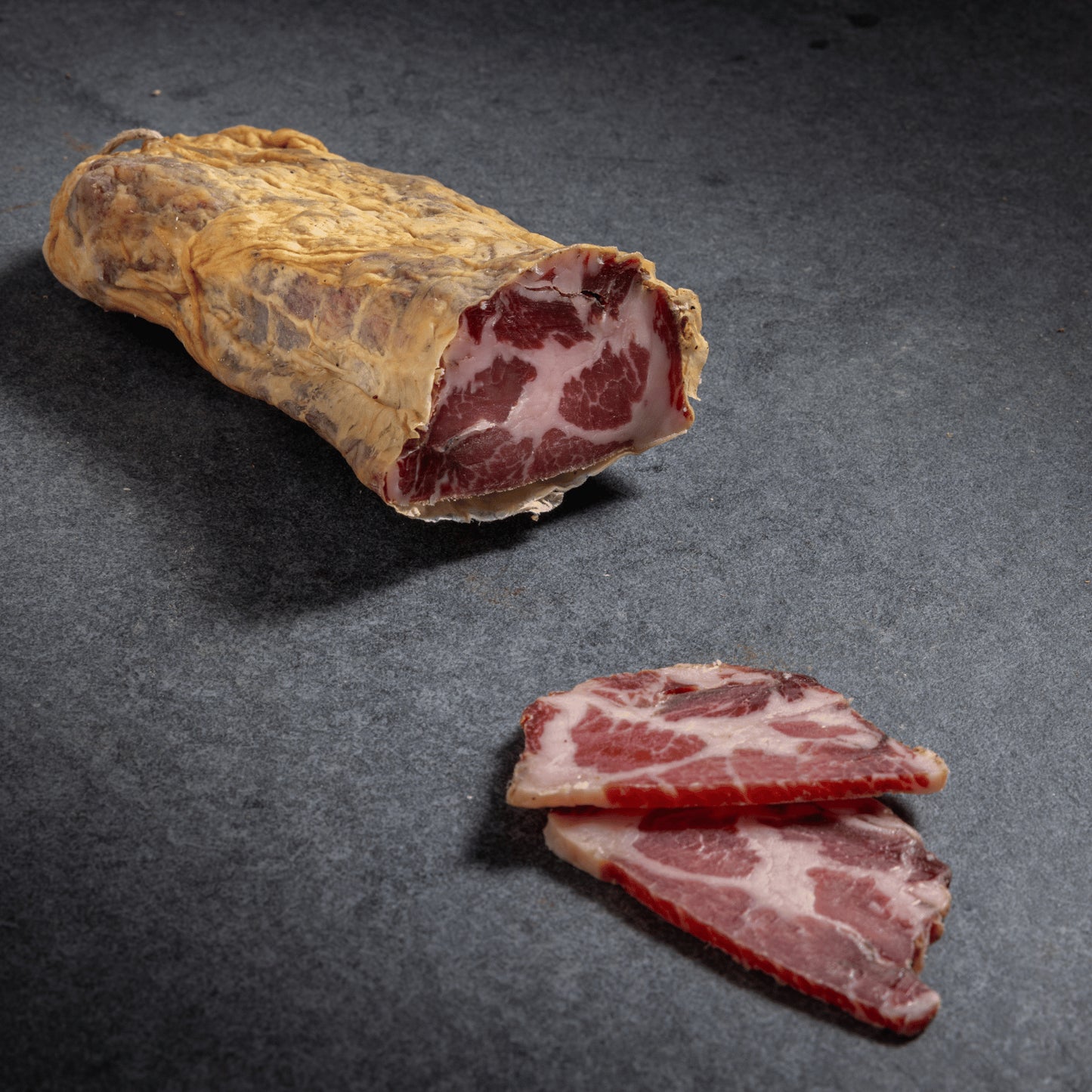
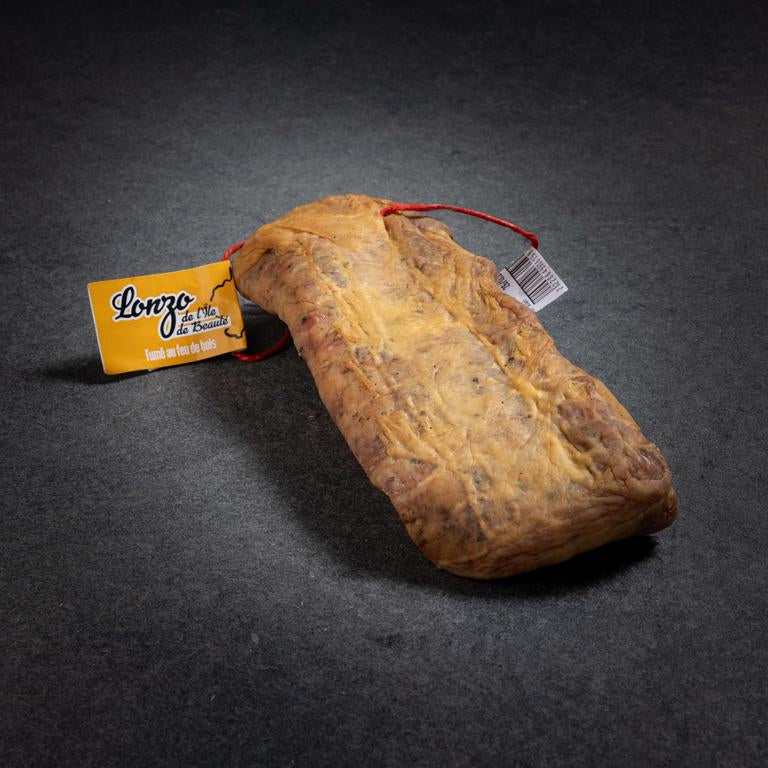
Lonzu is a charcuterie made from Corsican porcu nustrale breed pork, made from pork loin (upper part of the neck). This premium piece will be salted, dried and then refined before becoming the "lonzu" that you know.
When you slice it, take the time to appreciate its beautiful slightly marbled pinkish red color.
This item contains 330g of minimum product.
Lonzu tasting advice
- Take the sausage out at least 15 minutes before eating it;
- Do not hesitate to taste this sausage when it is very dry;
- Cut thin slices for an authentic tasting;
For an even more authentic experience, accompany it with fresh bread and goat's milk tome cheese, as many Corsicans do.
History of the Lonzi
Preserving Lonzu is one of the oldest pork preservation practices found in Corsica.
These cold cuts were suspended from the ceiling of the kitchen, near the fireplace.
Summer and winter, a fire burned there, which allowed the Lonzi to be smoked. Corsican artisan butchers carefully selected the best pieces of pork to ensure the superior quality of the products they offered.
The meat is marinated in a mixture of spices and aromatic herbs, then wrapped in natural casings before being slowly dried in the open air for several weeks.
Preservation of the designation of origin
Since March 1, 2011, the designation of origin of this agricultural product has been preserved within the European Union via the Protected Designation of Origin label. This designation guarantees that Lonzu is produced according to traditional methods, using local ingredients, and in a specific geographical region of Corsica.
Preparation of Lonzu
Lonzu is made from porcu nustrale fillets. There are usually four Lonzi per beast. When cut, the pieces reveal a united fat part and a lean part. They are then directly salted (around 35 grams per kilogram) and placed in a cool container for 4 to 5 days. The flesh then releases a little liquid and the pieces are washed in wine, dried and peppered.
The fillet is then slipped into a pork casing which is tied up. The fillets are then smoked and then aged in the cellar.
Refining lasts at least 5 months to develop a nutty taste. During this period, the Lonzu is regularly brushed to remove mold and ensure uniform maturation.
Consumption of Lonzu
It is customary and necessary to consume Lonzu in spring as an appetizer like prisuttu (Corsican raw ham) and is served in thin slices.
But today you can consume it all year round and enjoy its strong flavors.
Some Corsicans accompany it with goat's milk, cut it into shavings in an omelette, in a pasta dish, in a stuffing. Lonzu can also be used to add flavor to a variety of dishes, such as pastas, salads and stews.
Your imagination will guide the rest.
It is recommended to store this product at a temperature below 18°C.
This product is subject to drying out.

